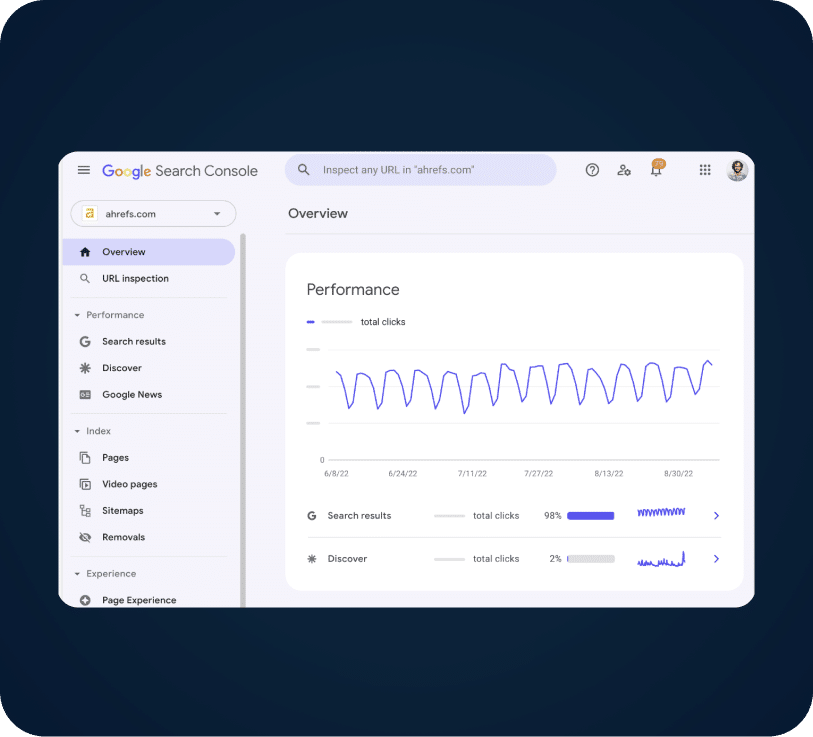
Image Source: FreeImages
Step into the future of SEO with the most up-to-date strategies and techniques. In the ever-evolving digital landscape, staying ahead of the curve is essential. As we approach 2024, it’s time to gear up for the latest SEO updates that will shape the online world.
These updates are designed to ensure better user experiences and drive more organic traffic to your website. From optimizing for voice search to understanding the impact of mobile-first indexing, there are plenty of areas to focus on. Embracing AI-powered tools, incorporating video content, and mastering structured data are also crucial for success in the coming year.
Whether you’re an SEO professional or a website owner looking to boost your online visibility, this article will provide you with the insights you need. With a deep dive into the latest trends, best practices, and expert predictions, you’ll gain a competitive edge in the ever-changing SEO landscape.
Get ready to unlock new opportunities and reach new heights in SEO as we explore the 2024 updates and the strategies that will drive your website to the top of the search engine rankings.
Importance of staying updated with SEO changes
Staying updated with SEO changes is crucial for maintaining your website’s visibility and ranking in search engine results. As search engines like Google continually update their algorithms, it’s important to understand the evolving landscape and adapt your SEO strategies accordingly.
By staying up-to-date, you can take advantage of new opportunities, optimize your website for the latest trends, and stay ahead of your competitors. Ignoring SEO updates can lead to a decline in organic traffic and a decrease in online visibility.
To stay updated, follow industry-leading SEO blogs and websites, attend conferences, and network with other professionals in the field. By actively seeking knowledge and implementing the latest SEO techniques, you can ensure your website remains relevant and highly visible to your target audience.
Google algorithm updates
Google algorithm updates play a significant role in determining search engine rankings. Understanding these updates and their impact on your website’s visibility is crucial for SEO success.
Google regularly releases algorithm updates to improve the quality of search results and combat spammy or low-quality websites. These updates can affect various aspects of SEO, including content relevancy, backlink profiles, and user experience.
Some notable algorithm updates include Panda, Penguin, and RankBrain. The Panda update focuses on content quality and penalizes websites with thin or duplicate content. Penguin targets manipulative link building practices, while RankBrain is an AI-based algorithm that helps Google understand search queries better.
To stay on top of algorithm updates, monitor industry news and ensure your website follows best practices for content creation, backlinking, and user experience. By aligning your SEO efforts with Google’s guidelines, you can enhance your website’s visibility and authority in search results.
Core Web Vitals and user experience
User experience (UX) has become a crucial ranking factor in SEO. Google’s Core Web Vitals initiative focuses on three key metrics: Largest Contentful Paint (LCP), First Input Delay (FID), and Cumulative Layout Shift (CLS). These metrics measure loading speed, interactivity, and visual stability, respectively.
To optimize for Core Web Vitals, prioritize website performance by optimizing server response times, compressing images, and minifying CSS and JavaScript files. Improve interactivity by minimizing JavaScript execution time and optimizing event handlers. Lastly, ensure a visually stable experience by using proper image and video element dimensions.
By prioritizing user experience and optimizing for Core Web Vitals, you can improve your website’s ranking and provide visitors with a seamless browsing experience.
Mobile-first indexing
With the increasing use of smartphones, Google has shifted to mobile-first indexing. This means that Google predominantly uses the mobile version of a website’s content for indexing and ranking.
To optimize for mobile-first indexing, ensure your website is mobile-friendly, responsive, and loads quickly on mobile devices. Use a responsive design that adapts to different screen sizes, and optimize images and videos for mobile viewing.
Additionally, prioritize mobile user experience by making sure your website’s navigation is easy to use on small screens, and content is easily accessible and readable.
By prioritizing mobile optimization, you can enhance your website’s visibility in mobile search results and cater to the growing number of mobile users.
Voice search optimization
Voice search is gaining popularity with the rise of virtual assistants like Siri, Alexa, and Google Assistant. Optimizing your website for voice search can help you capture a new audience and drive more organic traffic.
To optimize for voice search, focus on long-tail keywords and natural language phrases. Use conversational language in your content and provide direct answers to commonly asked questions. This can increase the chances of your website being featured in voice search results.
Additionally, ensure your website’s structure is well-organized, and content is easily scannable. Consider creating FAQ pages that address common queries related to your industry or niche.
By optimizing for voice search, you can stay ahead of the curve and attract voice search users to your website.
Artificial intelligence and machine learning in SEO
Artificial intelligence (AI) and machine learning (ML) are revolutionizing the SEO landscape. These technologies can analyze vast amounts of data, identify patterns, and provide valuable insights for optimizing your website.
AI-powered tools can help with keyword research, content creation, and competitor analysis. They can provide data-driven recommendations for improving your website’s SEO performance and identifying new opportunities.
Machine learning algorithms can also help search engines better understand user intent and deliver more relevant search results. By understanding how AI and ML impact search rankings, you can leverage these technologies to improve your website’s visibility and attract more organic traffic.
E-A-T and content quality
Expertise, Authority, and Trustworthiness (E-A-T) are essential factors in determining a website’s credibility and ranking. Google values high-quality content from authoritative sources that demonstrate expertise in their respective fields.
To improve your website’s E-A-T, focus on creating comprehensive, well-researched content that provides value to your audience. Establish yourself as an authority in your industry by publishing thought leadership articles, obtaining backlinks from reputable websites, and showcasing your expertise through case studies and testimonials.
Additionally, ensure your website provides a secure browsing experience by implementing HTTPS and protecting user data. Regularly update and maintain your website to ensure it meets the highest quality standards.
By prioritizing E-A-T and content quality, you can build trust with search engines and users, leading to improved rankings and increased organic traffic.
Local SEO updates
Local SEO is crucial for businesses targeting specific geographic areas. Optimizing your website for local search can help you attract customers in your vicinity and drive foot traffic to your physical location.
To improve your local SEO, claim and optimize your Google My Business listing. Provide accurate and up-to-date information about your business, including address, phone number, and opening hours. Encourage customers to leave reviews, as positive reviews can boost your local visibility.
Additionally, optimize your website’s meta tags, headings, and content with location-specific keywords. Create location-based landing pages and ensure your website is mobile-friendly for users searching on the go.
By focusing on local SEO, you can increase your visibility in local search results and target customers in your area effectively.
Conclusion and staying ahead of SEO updates
As we approach 2024, it’s crucial to stay ahead of SEO updates to maintain your website’s visibility and drive organic traffic. By understanding the latest trends and best practices, you can optimize your website for better user experiences and higher search engine rankings.
Stay updated with Google algorithm updates and align your SEO efforts with their guidelines. Optimize for Core Web Vitals to enhance user experience and improve your website’s performance. Prioritize mobile-first indexing and optimize for voice search to cater to mobile users and capture voice search traffic.
Leverage AI and machine learning in your SEO strategies to gain valuable insights and identify new opportunities. Focus on E-A-T and content quality to build trust with search engines and users. Finally, optimize your website for local search to attract customers in your area and drive foot traffic to your physical location.
By staying proactive and adapting to the ever-changing SEO landscape, you’ll be well-positioned to reach new heights and stay ahead of the competition in 2024 and beyond.





